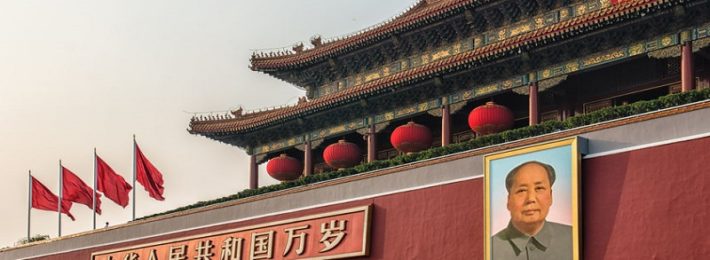People’s Republic of China Contacts Sink Security Clearance Application

It seems everyday you hear about technology, trade secrets or proprietary theft by foreign agents acting on behalf of China and it is well known their aggressive cyber-espionage threat, not only to the United States, but the entire world is high. The U.S. State Department has established a “One China” foreign policy lumping Hong Kong and Taiwan together with China imposing restrictions on the business dealings and transfer of U.S. restricted, military, and dual use technology. Additional scrutiny is added for security clearance applicants who have ties or contacts with foreign nationals from these countries. Here is a summary of a Defense Office of Hearing and Appeals (DOHA) case that involved foreign influence from China:
The applicant was a naturalized U.S. citizen born in China. She moved to the U.S. in 2002 to pursue a graduate degree and obtained both a Master’s and Doctorate degree by 2011. She was naturalized in 2017. She got a job working for a defense contractor in 2016 and now has applied for a security clearance. On her SF-86 she listed her family members who are still citizens of China and live there. She also listed foreign national friends who live in Hong Kong and Taiwan. She admitted to traveling to China annually between 2011-18 to visit her family.
Due to the foreign influence concerns the DoD declined to grant her clearance eligibility and she subsequently appealed to DOHA. In her appeal she admitted to each foreign influence allegation and presented no additional information that would mitigate the concern. The judge in this case opined although the applicant is a U.S. citizen and has lived in the U.S. for over ten years, the threat of her family being used by the Chinese government to influence her to provide classified information was too great and denied her appeal.



Honestly this does not surprise me at all. When I tell people how something is going to appear on their clearance others want to argue and get up set but what they don’t seem to understand is “whole person” does NOT by any means mean that everything is okay and anything goes. There are several scenarios that will automatically disqualify you and certain things that have a very lengthy disqualification period. But it’s fine if people don’t want to listen. They can go on living how ever and trusting that “whole person” will keep them qualified right up until the time they lose their clearance over something stupid.
I am in process for a TS/SCI and I was born in China and have long distance contacts over there. Would you say the agency would not submit me if they though I would not he able to obtain clearance? I’ve repeatedly and i mean repeatedly asked them if this has been disqualifying and they said no. At this point I’m not sure what to think because I’ve passed a poly and everything else.
Every investigation is unique and evaluated on it’s own merits. If foreign influence or preference issues are identified, then they look for mitigating factors. No one here can tell you whether you will be granted or denied eligibility, just being honest and up front on everything is all you can do. Read up on SEAD 4.
How long ago did you complete your poly and BI?
What’s your order of the whole process?
Mine was BI on the field, then forms, security interview, poly and psych.
It’s been almost a year since I applied, 6 months since I submitted my sf86. I am also a naturalized U.S. citizen with three letter agency.
I think you should try to search for DOHA case and be better prepared.
Look up all the guidelines, especially foreign influence.
I would just search google with this
“ PRC site: https://doha.ogc.osd.mil”
Trust me, I spent months studying probably hundreds of cases. To this end I have determined it is all up to the best lawyer one can retain and the judge. Read file of someone with over millions dollars of equity/property in the US yet still got rejected because he talked to his family overseas once a week…or paying them small amount of monthly financial support…even the subject’s core family (wife, kids, even in laws) are Us citizens. The subject is also from ROC instead of PRC…
I also saw cases where individuals from Pakistan with brother in the military plus a small property , guess what, he got granted for access.
I did notice a trend that being dishonest on SF86, no matter how trivial it is, is almost an immediate disqualification.
Good luck!!
The order was: Technical testing - Filled out SF86- Personnel interview with OPM - single passed polygraph which transitioned me to BI for the last month or so.
Red flags: Current Chinese passport that has not been used but reported.
2 Chinese aunts as foreign contact who I’ve not seen in years who are not and have never been in govt.
And of course living in China as a minor before immigration to the USA.
I thought China does not recognize dual citizenship, therefore, when you took the oath to become a U.S. citizen, you had automatically renounce the Chinese citizenship, no?
Have you ever used the Chinese passport after you become a citizen? If not, I don’t really think the passport would be a big deal, especially if you tell the security officer you are willing to surrender the passport.
What about possible inheritances overseas? Do your parents have any property in China? If so, what would you do if they pass that to you?
It also depends on what kind of connections your aunts have, and how often your parents talking to them …especially if you are close to your parents.
But seriously, I would say just treat this like it will not happen, keep looking for other opportunity until they give you a firm date to start working. I also read horrible story of people being kicked out of orientation because HR messed up! Imagine that! I am sure you must be a talented person and just keep looking, you have done everything you could possible to be a great candidate for them, it is really out of your hands now.
I talk to myself like this too…